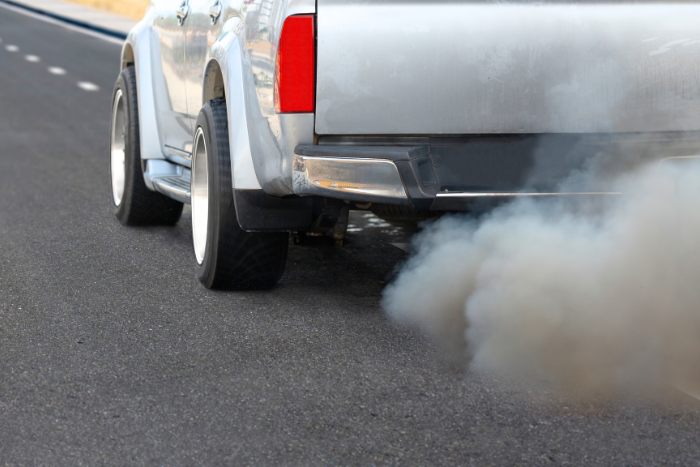Sales of polluting SUVs hit a new record in 2023 at 50% of all new cars sold globally, data revealed. Increasing number of new heavy vehicles is pushing up the carbon emissions that drive global heating, scientists warned. The International Energy Agency (IEA) found that the rising emissions from SUVs in 2023 made up 20% of the global increase in CO2, making the vehicles a major cause of the intensifying climate crisis. If SUVs were a country, the IEA said, they would be the world’s fifth-largest emitter of CO2, ahead of the national emissions of both Japan and Germany, the Guardian reported.
Climate-fuelled extreme weather is increasing, with urgent cuts in emissions needed. But emissions from the global transport sector have risen fast in recent years. SUV sales rose 15% in 2023, compared with a 3% rise for conventional cars, the newspaper reported.
Discharge of toxic water from factories in Jodhpur: NGT asks authorities to file response
The Rajasthan State Pollution Control Board, Central Pollution Control Board and the Collector/District Magistrate, Balotra, Rajasthan, have been asked to respond to National Green Tribunal’s (NGT) notice for violating the water act by releasing toxic chemicals in water bodies.
DTE reported that according to news published in Balotra Patrika on March 16, 2024, the chemical-mixed water from the cloth manufacturing factories in the the Doli-Aaraba area has reached Kalyanpur, Balotra district. This has been causing serious inconvenience to villagers. No action has been taken by the authorities despite many days having passed. The Water Act, 1974, and the provisions of Environment Protection Act, 1986, had been violated, the news report stated. India’s green court (NGT) directed authorities to file a response.
Units manufacturing formaldehyde without green clearance in Yamunanagar, Haryana
Cancerous chemicals seeping in ground water from illegal formaldehyde manufacturing units continue to haunt Haryana. The NGT once agan directed the Haryana State Pollution Control Board on May 15, 2024, to file its reply on units manufacturing formaldehyde operating in Haryana’s Yamunanagar without obtaining any environmental clearance (EC). The respondents have to file their affidavits at least one week before the next date of hearing (August 30, 2024), the order said.
The factories use copious amounts of water and pollute the groundwater and air significantly, an earlier NGT order had said. The illegal units pose serious health hazards. There is no mechanism to check leaching of methanol from underground tanks.
German company BASF to pay $316 million to settle ‘forever chemicals’ US lawsuit
German chemical company BASF will pay $316.5 million in settlement to some US public water systems that claimed toxic “forever chemicals” in firefighting foam made by the company contaminated their water supplies, reported Reuters. PFAS are a class of chemicals used in thousands of consumer and commercial products, including firefighting foams, non-stick pans and stain-resistant fabrics. They have been tied to cancers and other diseases, and are often called forever chemicals because they do not easily break down in nature or the human body.
BASF said the settlement does not constitute an admission of liability or wrongdoing, and that it will seek to recover for the settlement through its numerous insurance policies.
Meghalaya unveils e-waste bin initiative to combat electronic pollution
In a move to tackle the mounting electronic waste (e-waste) menace in the state, the Meghalaya State Pollution Control Board (MSPCB) joined hands with Hulladek Recycling Private Limited to introduce dedicated e-waste bins across the state.
During the launch, MSPCB Member and Secretary, GH Chyrmang, presented a comprehensive report on the state’s e-waste scenario, revealing that commercial establishments, educational institutions, and offices are the major contributors. Reportedly, Shillong generates the highest e-waste, followed by the West Garo Hills.
Pollution poisons Periyar: Thousands of fish perish
Thousands of dead fish were found floating on the surface of the Periyar River and Kochi backwaters, along the stretch from Pathalam to Thanthoni Thuruthu and Vypeen islands. The water turned black and emitted a strong stench of decaying fish, TOI reported. Local residents suspect industrial units discharged toxic effluents, poisoning the water.
Shabeer OV, a member of the Periyar watch team of Periyar Maleenikkara Virudha Samithi (PMVS) said taking advantage of flooding when authorities open shutters to release flood waters the industrial units have released their stored effluents and waste during the night when they realized that the shutters would be opened after the rainfall warning.
About The Author
You may also like
Govt Says No Conclusive Data Relating Deaths to Pollution
Parents, Activists Protests at India Gate as Air Turns Toxic
Top court allows ‘green firecrackers’ in Delhi on Diwali with conditions
CPCB should help industry meet green norms: Environment Minister
Noise pollution from trains hit surrounding homes, exceed limits by 85%

